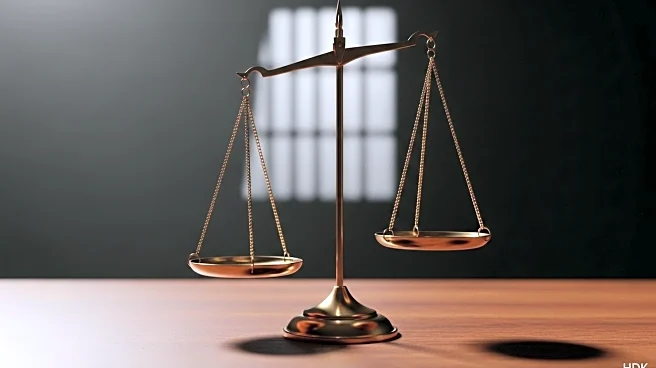What's Happening?
The US has deported several individuals to Eswatini, raising legal concerns about their imprisonment. Lawyers representing five men deported from the US to Eswatini claim they are being denied proper access to their clients, who are allegedly imprisoned illegally. These men, originating from Vietnam, Jamaica, Laos, Yemen, and Cuba, had served their sentences in the US before being deported. The deportations are part of a broader trend under President Trump's administration, which has been sending migrants to third countries. The deportees are reportedly held in a maximum-security facility, with limited communication allowed. Legal challenges have been filed in Eswatini, questioning the constitutional grounds of accepting these deportees.
Why It's Important?
This development highlights significant legal and human rights concerns regarding the deportation practices of the US. The deportation of individuals to countries where they may face imprisonment without due process raises ethical questions and potential violations of international human rights standards. The situation underscores the complexities and potential injustices in the US immigration and deportation policies, particularly under President Trump's administration. It also reflects the broader geopolitical implications of outsourcing detention and deportation responsibilities to third countries, which may not have the infrastructure or legal frameworks to ensure fair treatment of deportees.
What's Next?
Legal proceedings in Eswatini are ongoing, with local NGOs challenging the acceptance of deportees on constitutional grounds. The outcome of these cases could influence future deportation agreements and practices. Additionally, the US may face increased scrutiny and pressure from international human rights organizations to address the ethical implications of its deportation policies. The Department of Homeland Security and ICE have yet to comment, leaving open questions about potential policy changes or responses to legal challenges.
Beyond the Headlines
The deportation of individuals to third countries raises broader ethical and legal questions about the responsibilities of nations in handling migrants and deportees. It challenges the notion of sovereignty and the rights of individuals who have served their sentences and are seeking reintegration into society. The situation in Eswatini may set a precedent for how other countries handle similar cases, potentially influencing global immigration and deportation policies.










